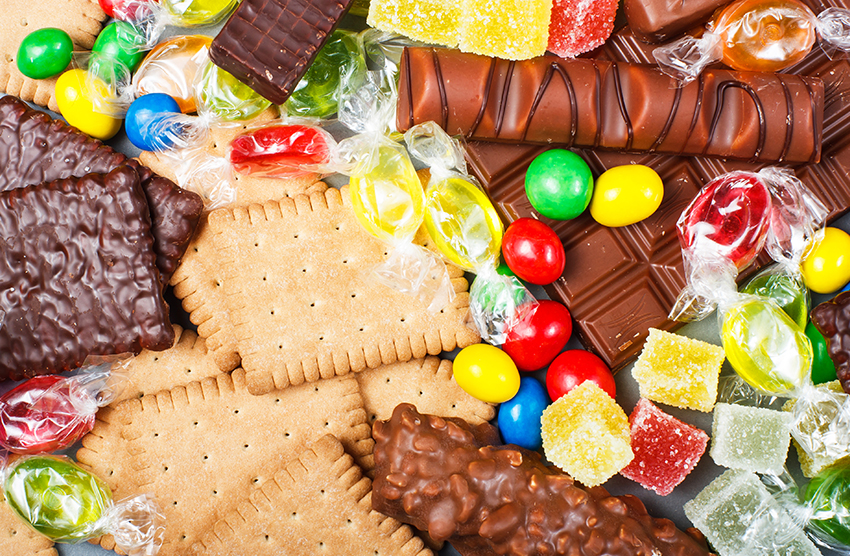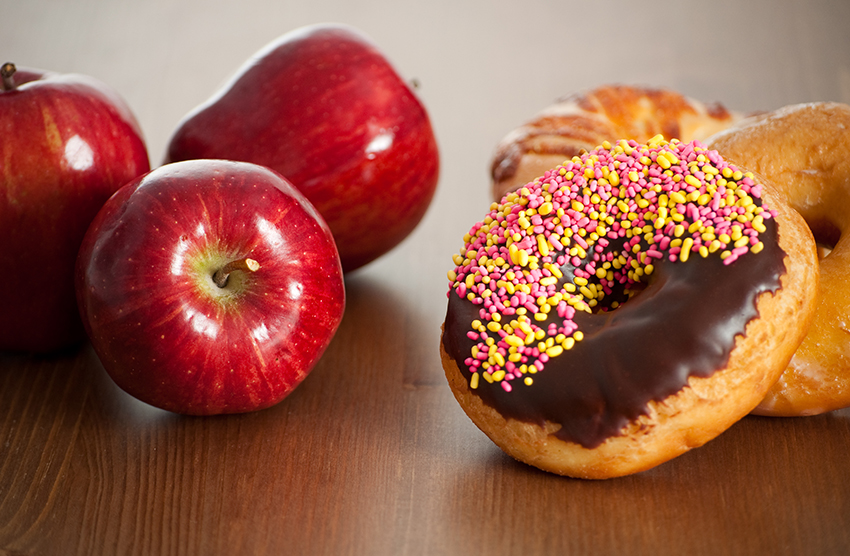Here’s the sixth topic of our article series, Food as Medicine. Today, I’ll help you better understand your blood sugar, with ways to regulate your insulin levels as an added bonus. Control your weight, boost your energy and reduce your risk of diabetes with the glycemic index.
Do you know about fast and slow carbohydrates? I’m sure you do. How about the glycemic index? To have a solid grasp of the subject, let’s focus on a hormone that many metabolic pathways have in common: insulin. This hormone allows the body to store glucose as glycogen when there’s too much glucose in the blood after eating too many high-carb or “hyperglycemic” foods.

But if your glycogen stores are already full, the body transforms the excess glucose into triglycerides, the basic component of… body fat! What’s more, insulin secretion favors the storage of dietary fat eaten during a meal. Simply put, you gain more weight by snacking on foods throughout the day that cause insulin secretion than by snacking on foods containing healthy fats.
What you eat and how you eat it has a direct influence on insulin secretion. If you regularly snack on high-carb foods throughout the day that trigger insulin secretion or if you drink sugary beverages, your body will constantly or excessively secrete insulin. This is followed by reactive hypoglycemia: paradoxically, this is a low blood sugar level that occurs after having eaten too much sugar, which was then absorbed too quickly. Moreover, the pancreas gradually becomes “tired” as it secretes insulin, causing cells to become less and less responsive to it. This is called insulin resistance. Your pancreas must therefore secrete even more insulin in order to trigger a physiological effect and the cells become even more resistant. A vicious circle sets in as your pancreas becomes exhausted, causing diabetes. Bad eating habits that cause excess insulin secretion therefore have direct short and long-term negative consequences for your health: a lack of alertness, energy, athletic and intellectual performance, difficulty controlling inflammation, carcinogenesis, etc.
For decades, the effects that carbohydrates have on blood sugar levels have been classified according to their biochemical structure. Simple carbohydrates are sugars that are quickly digested: glucose, sucrose (table sugar), dextrose, fructose, lactose, etc. On the contrary, complex carbohydrates are sugars that are gradually released into the bloodstream: this is starch found in grains and grain products (bread, pasta, semolina, biscuits, pastries, etc.), tubers, quinoa or pulses. This classification isn’t just obsolete; it also perpetuates food choices that are counterproductive to optimal health.
Dr. David J. A. Jenkins from the University of Toronto developed the concept of the glycemic index in 1981. A food’s glycemic index is measured by comparing the effects of a food containing 50g of carbohydrate to a food containing 50g of pure glucose (or white bread, according to some studies), whose glycemic index equals 100. The higher the glycemic index, the more insulin your body will secrete, and vice versa. In plain language, the higher the glycemic index, the more the effect a food has on your blood sugar levels is similar to the effect of glucose.

What’s important is that some foods that are rich in complex carbohydrates, such as white bread or a bowl of puffed breakfast cereal, make your body secrete as much insulin as table sugar, if not more! They therefore have nothing to do with slow carbohydrates. On the contrary, lentils trigger approximately three times less insulin secretion (with an equal amount of carbohydrates) when compared to mashed potatoes. Many factors have an effect on a food’s glycemic index value: the type of carbohydrate it contains, whether or not it contains fiber, how it combines with other foods, when and how it’s eaten and food processing techniques such as puffing (or extracting) grains or grain refinement (removing the bran and the germ).
To optimize insulin secretion throughout the day, you need to:
If you’ve overcome your weakness for sweets and other sugary drinks, soon you can find out everything you need to know about your blood pH and how to maintain your acid-base balance. Stay tuned!
Join the 7 million users already registered on FizzUp
Join us